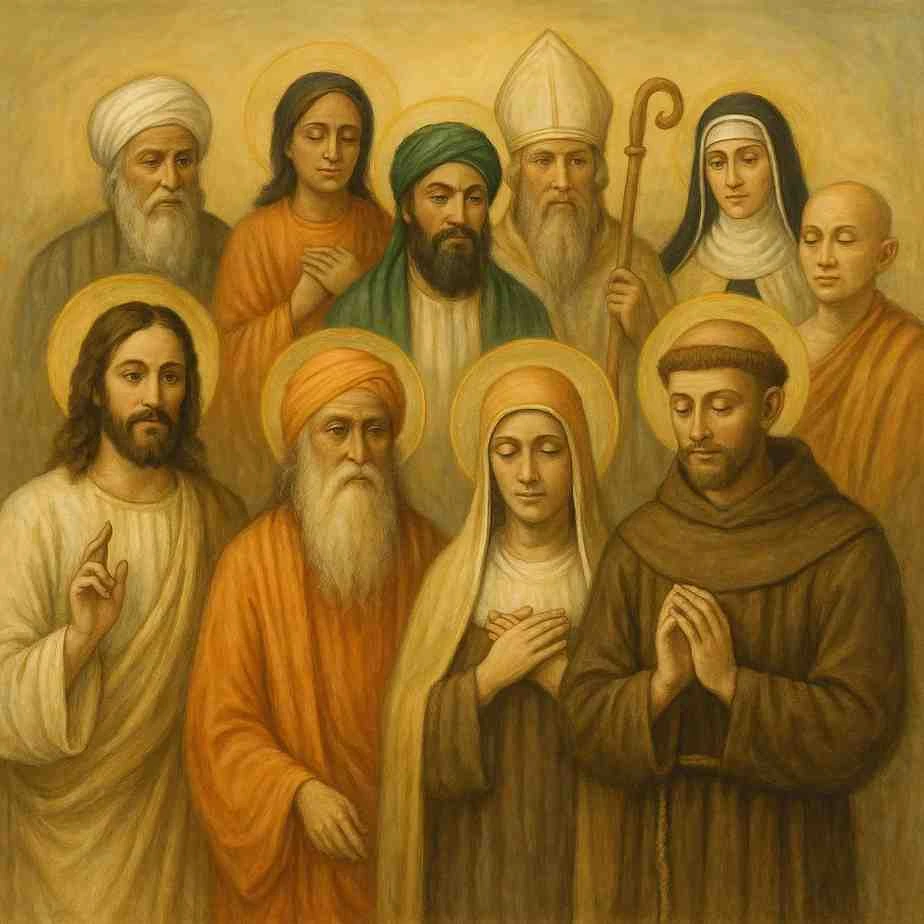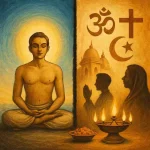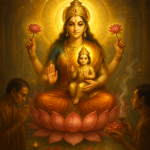Divine Messengers Through the Ages: Prophets, Gurus, and Saints Who Shaped Faith
Throughout human history, divine messengers have appeared across cultures and continents — prophets who spoke of truth, gurus who guided with wisdom, and saints who lived with compassion. Though they belonged to different times and traditions, their purpose was one: to remind humanity of its spiritual nature and moral responsibility. These enlightened figures bridged the gap between the divine and the earthly, leaving behind teachings that continue to inspire millions even today.
The Universal Role of the Divine Messenger
Every religion has produced figures who became voices of the divine. Whether called prophet, guru, saint, or seer, their mission was to awaken human beings to higher truths. They often emerged in times of moral decline or confusion, challenging injustice and reawakening faith.
These messengers were not always welcomed. Many faced persecution, exile, or doubt. Yet their courage and conviction transformed societies. They spoke of compassion, equality, and spiritual discipline, teaching that every human being carries a spark of the divine. Their lives remind us that true leadership is rooted not in power, but in purity of purpose.
Prophets: Voices of Revelation
In the Abrahamic traditions — Judaism, Christianity, and Islam — prophets are chosen individuals through whom God communicates His will. They serve as intermediaries between heaven and humanity, delivering messages that guide moral and spiritual life.
In Judaism, prophets such as Moses, Isaiah, and Jeremiah called for righteousness and social justice. They reminded the people of their covenant with God and the importance of ethical living. Christianity holds Jesus Christ as the central figure — a prophet, teacher, and savior who revealed divine love through sacrifice and forgiveness. In Islam, Prophet Muhammad (peace be upon him) is regarded as the final messenger, whose revelation, the Qur’an, offers guidance for all aspects of life.
Despite differences, all prophetic traditions share a vision of divine justice, compassion, and faith in one ultimate truth. Prophets remind humanity that spirituality is not limited to rituals — it must also shape the way we treat one another.
Gurus: Guides of the Inner Journey
In the Indian spiritual landscape, the concept of the Guru holds a central place. The word “Guru” means “the one who dispels darkness.” Unlike prophets, gurus are not always seen as direct messengers of God, but as enlightened beings who guide others toward self-realization and liberation (moksha).
In Hinduism, gurus like Adi Shankaracharya, Ramakrishna Paramhansa, and Swami Vivekananda have helped reinterpret ancient scriptures for new generations. They taught that divinity resides within every soul, and realization comes through meditation, self-discipline, and devotion.
In Sikhism, the ten Gurus — from Guru Nanak Dev Ji to Guru Gobind Singh Ji — played the role of spiritual reformers and social leaders. They emphasized equality, service, and remembrance of God through honest living. Their collective wisdom is preserved in the Guru Granth Sahib, regarded as the eternal living Guru.
The guru tradition shows that divine wisdom can manifest not only through revelation but also through realization — by direct experience of truth.
Saints: Living Examples of Divine Love
Saints, mystics, and sages are found in every faith, embodying the spirit of service, humility, and devotion. They are not always founders of religions, but their lives radiate spiritual light.
In Christianity, saints like St. Francis of Assisi and St. Teresa of Avila are revered for their purity, compassion, and miraculous devotion. In Islam, Sufi saints such as Rumi, Khwaja Moinuddin Chishti, and Rabia al-Basri spread the message of divine love that transcends boundaries.
India’s Bhakti and Sufi traditions produced saints like Mirabai, Kabir, Guru Ravidas, and Sai Baba, who broke barriers of caste and creed, teaching that love of God is love for all humanity. Their poetry and songs continue to inspire spiritual awakening beyond religion.
The Common Thread of Compassion
While prophets deliver divine law, gurus reveal spiritual knowledge, and saints embody divine love, all three share a single essence — compassion. Their lives prove that the divine does not belong to any one community, scripture, or language. Instead, it speaks through any heart pure enough to listen.
Despite cultural differences, their messages converge on universal truths: truthfulness, non-violence, humility, and service. Whether one follows the commandments of a prophet, the discipline of a guru, or the devotion of a saint, the goal remains the same — to unite with the divine and serve creation.
Lessons for the Modern Age
In a world divided by ideology and materialism, the teachings of these divine messengers hold greater relevance than ever. They remind us that spirituality is not confined to rituals or dogma; it is a way of living — with kindness, honesty, and awareness of the divine in all beings.
The prophets teach us courage in truth. The gurus show us the path of self-realization. The saints inspire us to live with unconditional love. Together, they form the spiritual backbone of human civilization. From the deserts of Arabia to the forests of India, from the monasteries of Europe to the temples of Asia, divine messengers have appeared wherever humanity has sought meaning. Their voices, though separated by time and tradition, echo one eternal truth — that God’s message is love, and love itself is the highest form of worship.
In honoring prophets, gurus, and saints, we are not just remembering history; we are reconnecting with the timeless light that continues to guide the human soul toward peace and divine unity.
~Religion World Bureau










